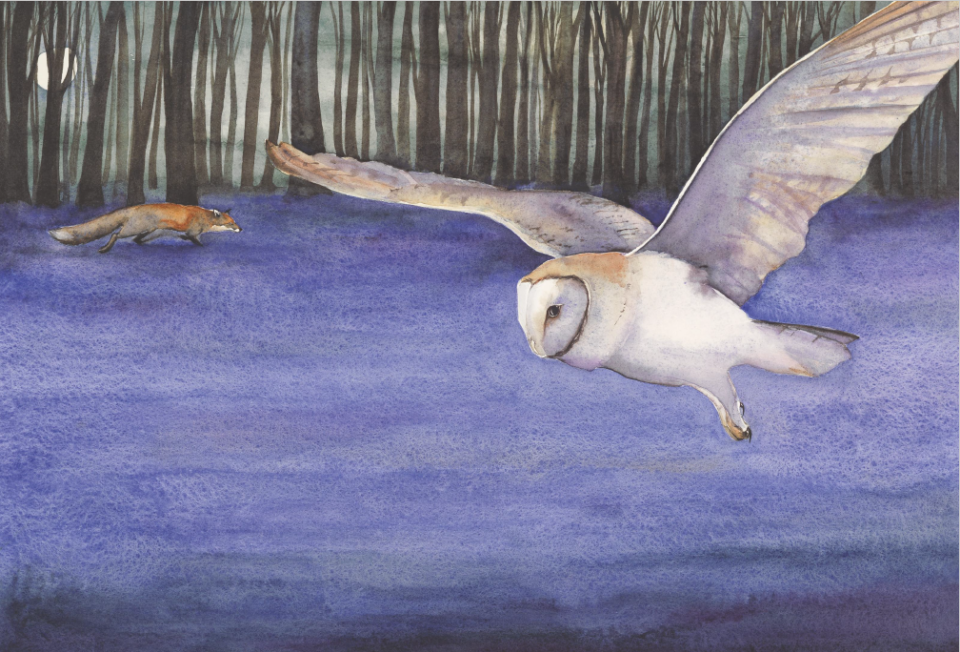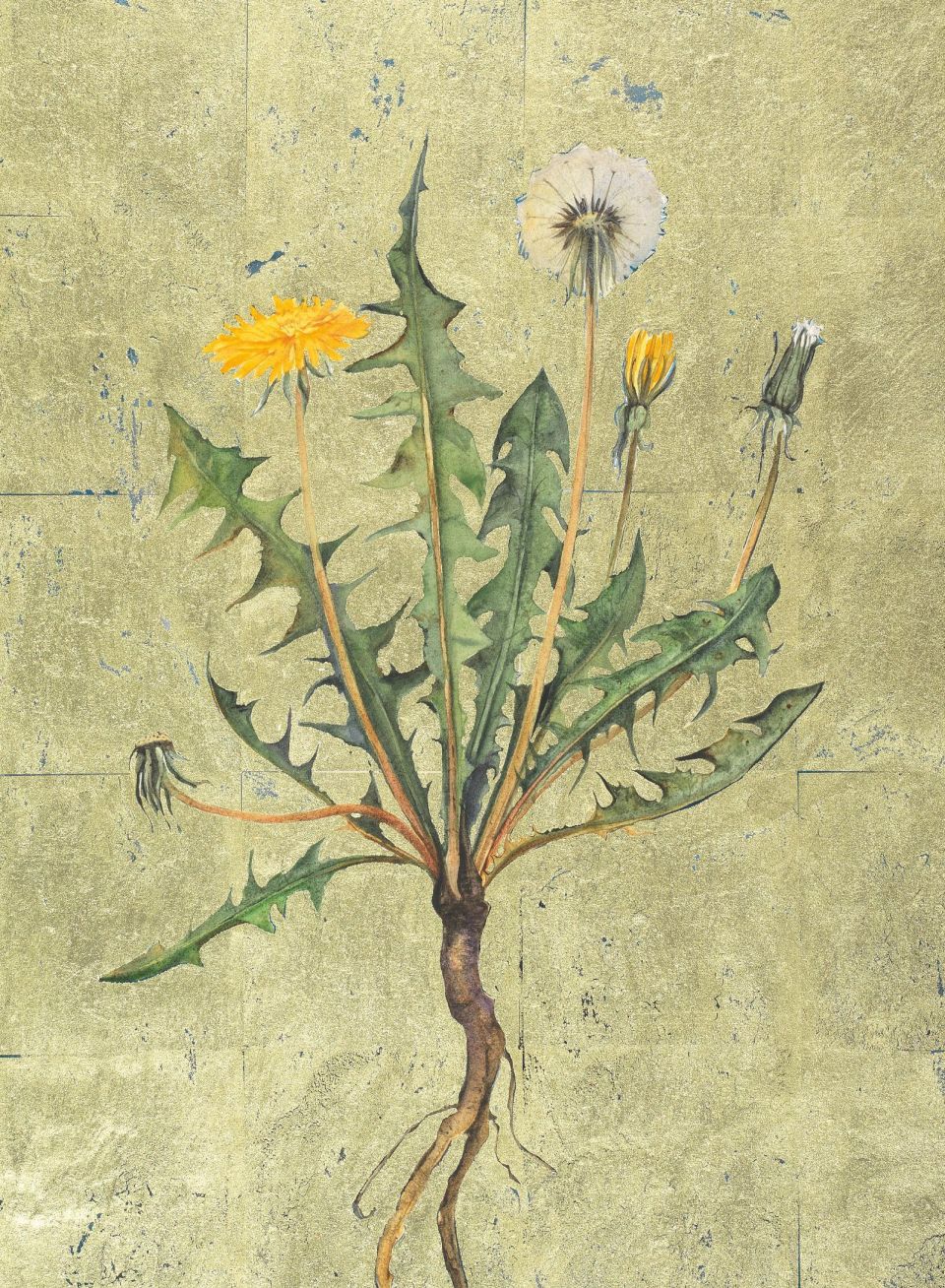The Lost Words: A Spell-Book

The acorn that has grown into a wildwood, and inspired a movement to re-wild childhood.
When the most recent edition of the Oxford Junior Dictionary – widely used in primary schools across Britain – was published, a sharp-eyed reader noticed that a number of common ‘nature words’ had been dropped from the new edition. The deletions formed a crooked almost A-to-Z, including acorn, adder, bluebell, buttercup, dandelion, fern, heron, kingfisher, lark, newt, otter, wren and willow. The words taking their places in the new edition included attachment, block-graph, blog, broadband, bullet-point, celebrity, chatroom, committee, cut-and-paste, MP3 player and voice-mail.
These words had been dropped because they were no longer being used enough by children or in the stories and the books they read to merit inclusion in the dictionary. For many people, this seemed a powerful signal of the gap that has opened between childhood and the natural world in this country.
That’s why, in 2015, the writer Robert Macfarlane and the artist Jackie Morris began work on a book that might summon back these ‘lost words’, and the creatures and plants they named, into the mouths and the mind’s eyes of children in Britain. “Protest can be beautiful”, Jackie Morris has written, and the hope of The Lost Words was to make a ‘spell book’ of power and beauty that could protest the gap between nature and childhood, and perhaps even work to close it.
For the gap is real. The RSPB’s 2013 Connecting with Nature report, based on a three-year research project, found only one in five British children to be “positively connected to nature”. A 2017 report found that British children spend less time outside each day than British prisoners (under an hour). In a National Trust survey, only a third of 8- to 11-year-olds could identify a magpie, though 9 out of 10 could name a Dalek. We are losing a literacy of everyday nature because we are losing everyday nature.
Protest can be beautiful.
Jackie Morris, illustrator
The Lost Words was published in October 2017, and it has become, in the words of the Guardian, ‘a cultural phenomenon’, and what Chris Packham has called ‘a revolution’. Thousands of schools in the country are now using the book in their classrooms and playgrounds, sparking classes – even whole schools – to do more outdoor learning, to improve the environments of their schools, and to undertake creative projects around nearby nature and its names.
Campaigns have sprung up to place the book into every school, hospital, hospice, and care home up and down the UK. Communities and individuals have raised over £60,000 to achieve this, starting with a campaign for the whole of Scotland (more than 2500 primary schools). Now, copies of the book are being delivered by bicycle (one man cycling 400 miles back and forth across Dorset), by sea kayak to outlying island schools, or in the company of barn and tawny owls (brought into schools by the Suffolk Wildlife Trust. Indeed, Robert and Jackie have started something huge, and they’re getting glimpses of the action with daily emails, photographs, videos and social media posts by people who are using it to change our relationship with the natural world.
And the revolution is spreading, with the book being adapted into a forest theatre performance, taken into inner-city settings, turned into film, folk music, dance, classical music. It will soon be published in North America, and European countries from Sweden to Germany.

Yet, to this point, no campaign has begun to bring The Lost Words ‘revolution’ to the whole of London. This is why Trees for Cities, with the backing of the Mayor of London’s office and Bulb, a leading renewable energy provider has decided to work with Robert and Jackie to place a copy of The Lost Words into every state primary school in London – more than 2500 of them – and in this way to help to re-green early years education in our capital city.
Our partners, Bulb, will match every £ donated, up to a total of £15,000. Bulb is a leading renewable energy provider that makes energy simpler, cheaper and greener for households and businesses. Bulb and Trees for Cities work together to deliver our ground breaking Edible Playground programme in primary schools across the country. Edible Playgrounds inspire hands-on learning and get children excited about growing and eating healthy food. They help improve health and wellbeing, open up access to nature, and provide a fun outdoor learning environment that supports cross-curriculum teaching. Sharing The Lost Words with London state primary schools encourages even more outdoor learning, which is why we started this project.
We’re proud to work with Trees for Cities to build Edible Playgrounds in inner-city schools. Helping to raise a generation of children connected to nature is an important part of protecting the future of the planet, which is core to Bulb’s mission. We’re excited to bring the benefits of Edible Playgrounds to more and more children across the UK.
Bulb CEO, Hayden Wood
London is home to a magnificent array of nature – including many of the species sadly removed from the Oxford Junior Dictionary. The Mayor and I want to make the capital one of the greenest cities on the planet and ensuring every London primary school has this wonderful book will inspire children to experience the nature on their doorstep
Shirley Rodrigues, Deputy Mayor for Environment and Energy
The Lost Words has already inspired thousands of children and adults to rekindle a love of the natural world. At a time when children are spending less time outdoors, it makes perfect sense to bring this magical book to every school in the capital, so thousands more children can learn about all their natural surroundings have to offer.
David Elliott, Chief Executive of Trees for Cities
As Robert himself puts it, The Lost Words has become much more than ‘just’ a book. As it has got children, teachers and parents excited again about exploring the natural world, with classes and entire schools venturing out into woods, parks and gardens to discover more about their surroundings, and unearth the lost words, and their meaning from the book:
What is being given with each copy of the book is, really, hope and change. Jackie and I could never have foreseen it during the years we spent writing it, but The Lost Words has been an acorn from which a wildwood has grown. We feel very lucky to be part of a much broader movement underway in Britain, bringing everyday nature back into our everyday lives, especially those of our children.
Robert Macfarlane
Donate to Trees for Cities and together we can help cities grow into greener, cleaner and healthier places for people to live and work worldwide.
Donate